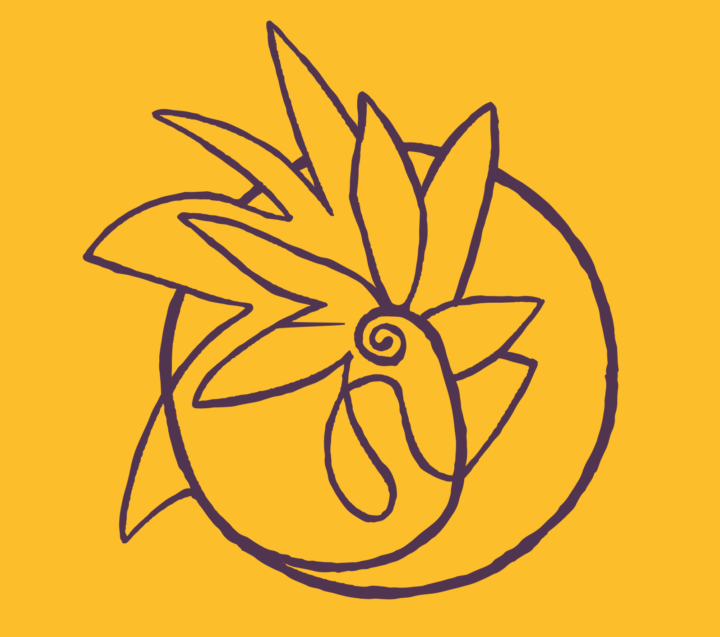OTEPIC, Kenya
Ever since 2011, we’ve worked with OTEPIC, a permaculture and community center in Kitale, Kenya. As a response to the extreme misery and hunger in the region, founder and leader Philip Munyasia works for the “real food revolution.” The community aims to achieve decentralized food autonomy and the empowerment of women, youth and children, working with permaculture principles. Guided by a strong vision, nothing seems to be impossible to the project, and what they’ve established so far is remarkable.
OTEPIC’s Founder Philip Munyasia
OTEPIC’s founder Philip Munyasia grew up in great poverty as the youngest of 8 brothers, never knowing when he would be able to eat next. From an early age, he carried a powerful vision in his heart. Seeing people around him die of hunger and diseases, he knew his purpose in life was to help transform lives in the impoverished townships and slums of his city of Kitale in northern Kenya. He saw that its environs could transform into a green region with an abundance of water and food, where no one would go hungry anymore. Having this vision, Philip took an unlikely path in life, experiencing what he describes as “miracles.” He was able to go to high school, later learn at a permaculture center in California and eventually come to Tamera. His friends and family thought he was crazy not to stay in the United States and instead return to Kenya. Philip says,
“The reason why I went back to Kenya was because I believed that all the coincidences that helped me to go on this journey were guidance. There was a reason for that. I had got the chance to learn, and I had to go back to pass on the knowledge I had received. This knowledge is much needed in the place that I come from. It can make a big difference. It can help young people to use their strength to change their situation and help in an effective way for the welfare of the people.”
Establishing the Organic Technology Extension and Promotion of Initiative Center (OTEPIC)
Inspired by the permaculture skills he learned in the United States, Philip started the “Organic Technology Extension and Promotion of Initiative Center” (OTEPIC) with a small core team in 2008. They’ve worked with local communities in and around Kitale, teaching several 1000 small-scale farmers to cultivate mixed cultures, produce in a sustainable way, regenerate soils and supply themselves with their own food. OTEPIC runs two demonstration gardens in the poorest neighborhoods of Kitale – the learning garden in Mitume and the Amani Garden in Bidii – to teach the local people community-based approaches to self-sufficiency. After study, the team visits their students and offers guidance on how to apply the techniques learnt in the workshops. OTEPIC’s work has improved the lives of thousands of people and the region as a whole. Since 2008, they’ve trained more than 2000 local farmers, women and youth, not only in agriculture, but also renewable energy technologies, peace education and building community. These are the principles they promote:
“Come together in communities
Grow abundance in mixed cultures – without any chemicals
Recycle your organic waste and make compost
Learn to treat water as a living being
Be friendly to animals
Make income from the surplus
Save your seeds
Cook with solar energy or biogas
Share with your neighbors
And join the global food revolution.”
Nancy Oppelle of the local women’s group Maili Saba, who’s been studying with OTEPIC since 2008 says, “Nobody goes hungry anymore, not even at the end of the dry season. Our children are healthy because they get a diverse diet. And the money that we save by not using chemical fertilizers helps to buy their school books.”
Our Work with OTEPIC
We’ve worked with OTEPIC from 2011 in the framework of the Global Campus. Philip Munyasia and other members of the OTEPIC leadership team have participated in its seminars. Several members of Tamera and other Global Campus stations have stayed with OTEPIC for longer periods of time. This collaboration inspired Philip to purchase a larger area of land and build a conference center in Sabwani, the Upendo Garden, where he wants to establish an ecovillage and International Permaculture School for East Africa in the future. With the support of the Global Campus and other partners, various regenerative technologies could be set up in OTEPIC like solar reflectors, biogas digesters, water retention techniques and more.

Show solidarity with peaceworkers worldwide!
Your contribution will enable students from less privileged backgrounds to study at Tamera.